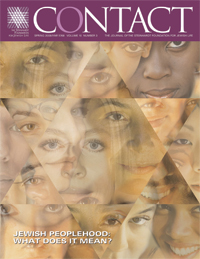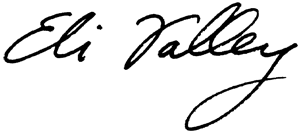
SPRING 2008/IYAR 5768 VOLUME 10 NUMBER 3

FROM THE EDITOR
JEWISH PEOPLEHOOD:
WHAT DOES IT MEAN?
A s the most recent buzzword occupying the minds of Jewish professionals — replacing “continuity,” “renaissance” and “Matisyahu” — the term “Peoplehood” has been given much attention lately as the newfound rhetorical panacea in Jewish life.
But what exactly is “Peoplehood”? Is it just another empty phrase carted out by Jewish communal professionals determined to keep Jews procreating with other Jews? Or does it have intrinsic meaning beyond catch-phrase pabulum? Where does Peoplehood end and tribalism begin? Is it possible to articulate Peoplehood in a manner that is inspiring yet not exclusionary?
The hazards of “Peoplehood” were on full display in a recent Op-Ed in the Forward by the Founding President of the Jewish People Policy Planning Institute. The author claimed that the needs of Peoplehood — specifically, the survival of the Jewish People — demanded an abrogation of morality in every issue (Turkey, China) that might have even a tertiary effect on Israel or on Jews. Leaving aside questions of ethics and morality, the fact that such viewpoints might actually reduce the number of Jews who want to belong to such a People did not seem to concern the author. It would appear that for some, Jewish Peoplehood is a cause to rally around even if its constituents number in the tens.
This issue of CONTACT explores the idea of Jewish Peoplehood from a wide variety of perspectives. Included are contemplations on the meaning and purpose of Peoplehood, on language as unifier of the Jewish People, and even on the possibility that Peoplehood is a destructive concept in Judaism. In the end, the many voices presented here offer evidence that if there is indeed such a thing as Peoplehood, it is defined by a multiplicity of viewpoints — a reflection of the compelling diversity of contemporary Jewish life.

Eli Valley
| PREVIOUS ARTICLE | NEXT ARTICLE |